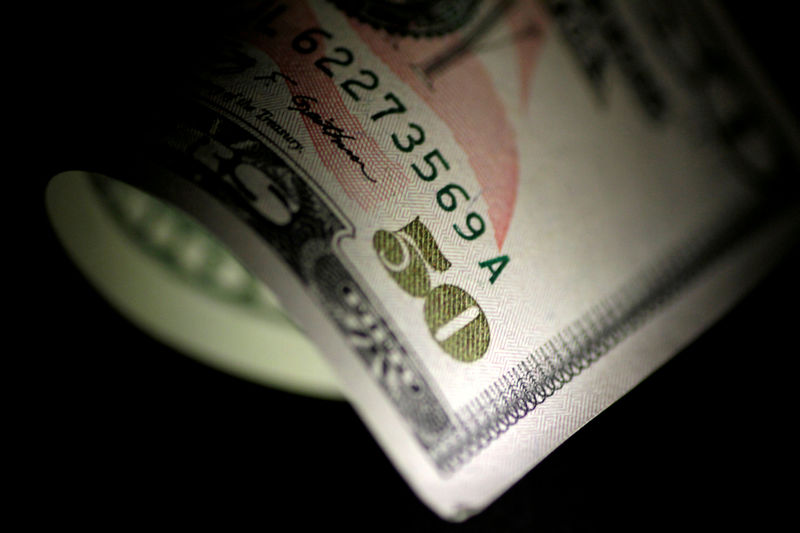 © Reuters. FILE PHOTO: Illustration photo of a U.S. Dollar note
© Reuters. FILE PHOTO: Illustration photo of a U.S. Dollar noteBy Lisa Twaronite
TOKYO (Reuters) – The dollar edged up on Friday though remained on track for weekly losses, while the euro skidded after Catalan vote results indicated a victory for separatists in a blow to Madrid.
Spain’s government had hoped that the Catalan election would strip pro-independence parties of their control of the regional parliament and end their campaign to force a split. But with 96 percent of ballots counted in a vote to elect Catalonia’s regional parliament, separatist parties are seen winning 70 seats out of 135.
The euro was down 0.3 percent at $1.1837
“There is support around $1.1800 level which will likely limit the euro’s downside,” said Yutaka Miura, a senior technical analyst at Mizuho Securities.
“This time of year, though, ahead of the holidays, many market participants are away and liquidity is thin, so we need to watch cautiously,” he added.
The , which measures the U.S. currency against a basket of six major rivals, was up 0.2 percent at 93.450 (). For the week, it was down 0.5 percent.
One immediate threat to dollar bulls was removed on Thursday, as the U.S. Senate approved a bill to fund the federal government through Jan. 19 and avert agency shutdowns ahead of a Friday midnight deadline. The bill now goes to President Donald Trump to sign into law.
Also underpinning the dollar, Congress approved the most significant U.S. tax code overhaul in three decades that was expected to give at least a short-term lift economic growth.
U.S. third-quarter data released on Thursday showed the economy grew at its fastest pace in more than two years, powered by robust business spending.
A separate report showed a jump in the number of Americans filing for unemployment benefits last week, but the underlying trend in jobless claims remained consistent with a tightening labor market.
The dollar was steady on the day against the yen at 113.33
On Thursday, Bank of Japan Governor Haruhiko Kuroda reinforced expectations that the BOJ was in no hurry to move away from its ultra-loose monetary policy.
Speaking after the BOJ held interest rates steady as widely expected, Kuroda said his earlier reference to a “reversal rate” did not indicate a change in his thinking on monetary policy.
Fusion Media or anyone involved with Fusion Media will not accept any liability for loss or damage as a result of reliance on the information including data, quotes, charts and buy/sell signals contained within this website. Please be fully informed regarding the risks and costs associated with trading the financial markets, it is one of the riskiest investment forms possible.
Source: Investing.com



























